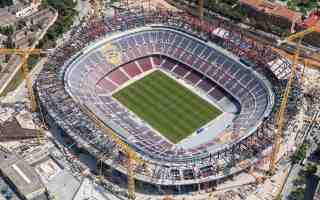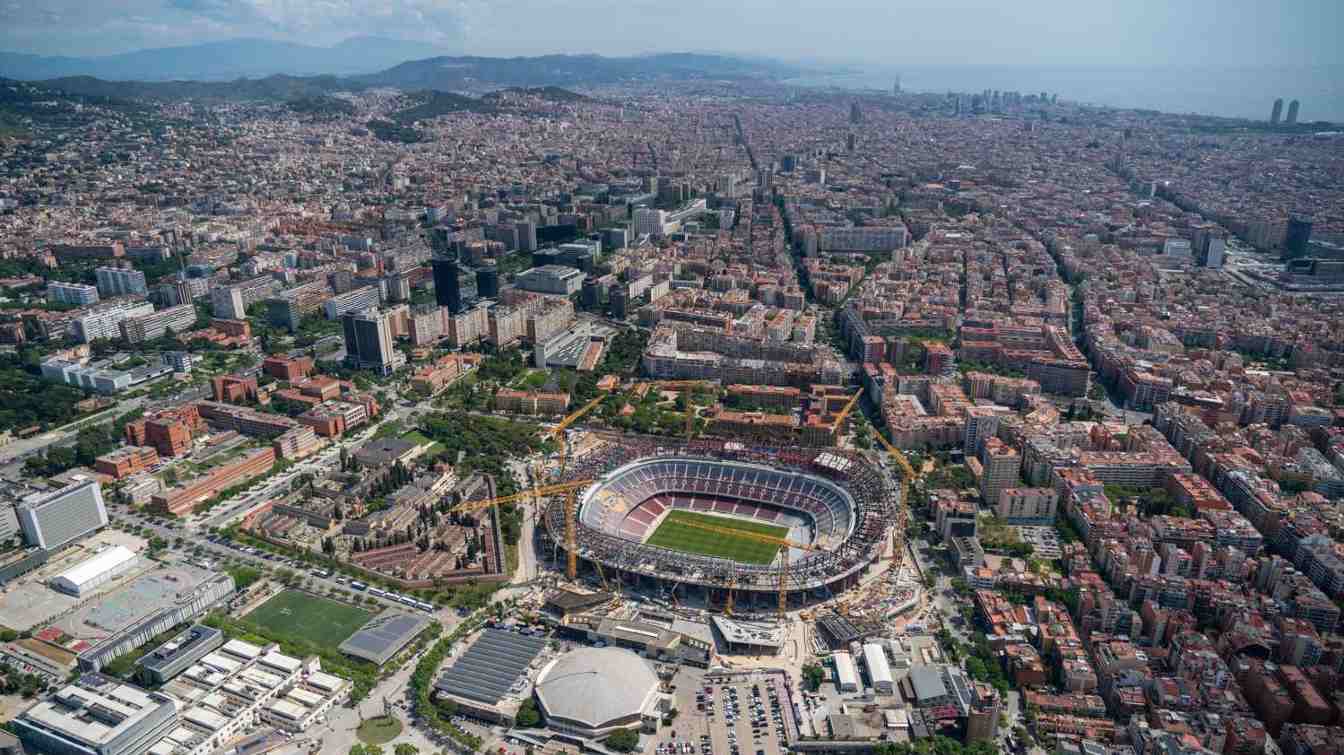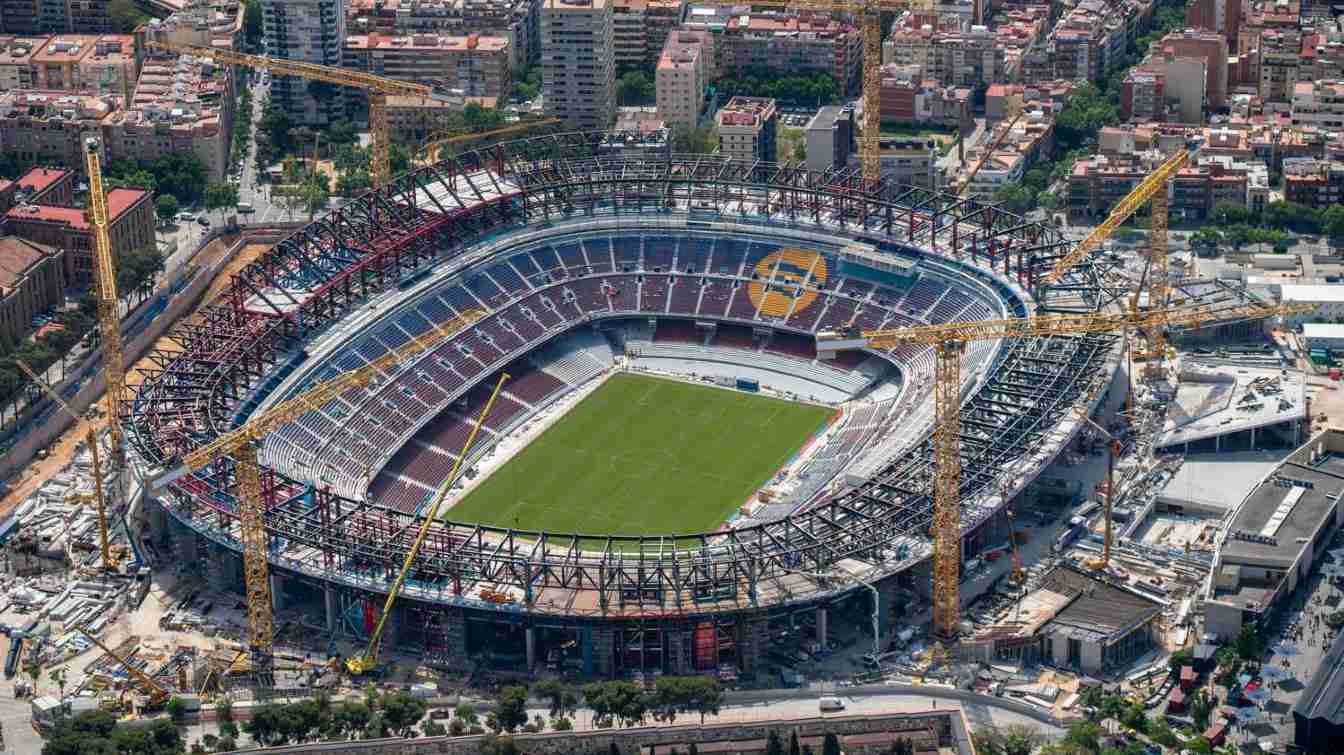Spain: Will Spotify Camp Nou be energy independent?
source: StadiumDB.com; author: Jakub Ducki
 The new Barcelona stadium aims to become a model of sustainable development. Thanks to the installation of batteries, solar panels, and water recovery systems, the venue will be able to operate fully autonomously, setting new standards for sports infrastructure.
The new Barcelona stadium aims to become a model of sustainable development. Thanks to the installation of batteries, solar panels, and water recovery systems, the venue will be able to operate fully autonomously, setting new standards for sports infrastructure.
Advertisement
Batteries at Spotify Camp Nou – step toward self-sufficiency
FC Barcelona is considering installing physical batteries at Spotify Camp Nou to ensure full energy independence for the stadium. Jordi Portabella, the club’s sustainability director, noted that the decision was accelerated by a power outage on April 28. Until now, batteries were not cost-effective, but now they add value by guaranteeing electricity at any time,
he explained.
Although the final decision has not yet been made, the club is leaning toward implementing this project. The new stadium already has four designated spots for battery installation, which could be repurposed for other uses if the project does not go ahead.
Solar energy and virtual batteries for evening matches
The planned renovation includes installing 18,000 square meters of solar panels, which will generate between 3.2 and 3.6 MWh of energy – enough to power a football match. Portabella explained that although most matches are played in the evening, the club plans to use virtual batteries. These will store the energy generated during the day and release it when needed. In practice, this means the stadium can use solar energy after dark, although the club will need to consider the difference in energy prices between day and night.
Eco-friendly solutions for water and building materials
The project also includes a rainwater collection system, with four large tanks to water the surrounding greenery. Portabella pointed to similar solutions already in place at the Ciutat Esportiva Joan Gamper facility in Sant Joan Despí, where the club used regenerated water from a treatment plant during the drought of 2022–2024. The process includes reverse osmosis, disinfection, ozonation, and strict quality control, ensuring the water is safe for pitch irrigation.
The construction of the new Spotify Camp Nou also follows an innovative approach to raw materials. Portabella highlighted that 120,000 tons of reinforced concrete from the demolished Miniestadi were reused. These efforts align with the kilometer zero
approach, reducing the need to transport materials over long distances. Reinforced concrete made up 20% of the total concrete mass used for the stadium, the maximum allowed by law. The remaining concrete was used for other construction processes. The new stadium was designed to meet sustainability requirements, earning BREEAM and LEED certifications to confirm its eco-friendly solutions and high energy efficiency.
Advertisement
 StadiumDB
StadiumDB
